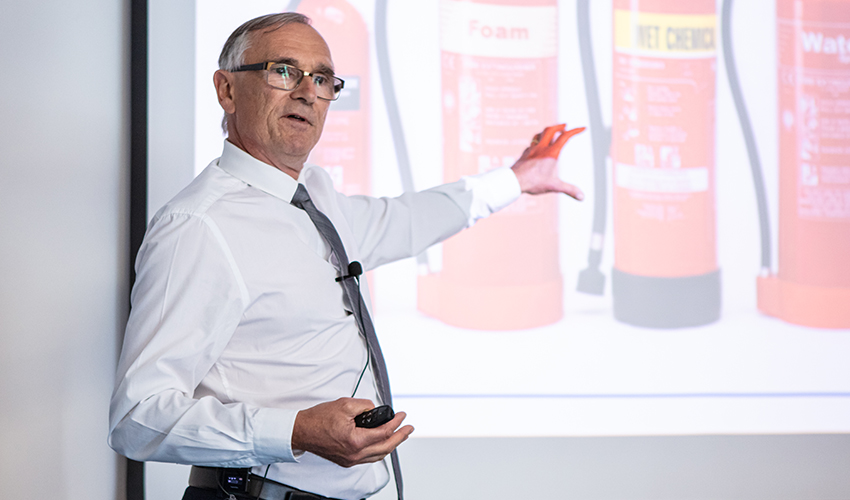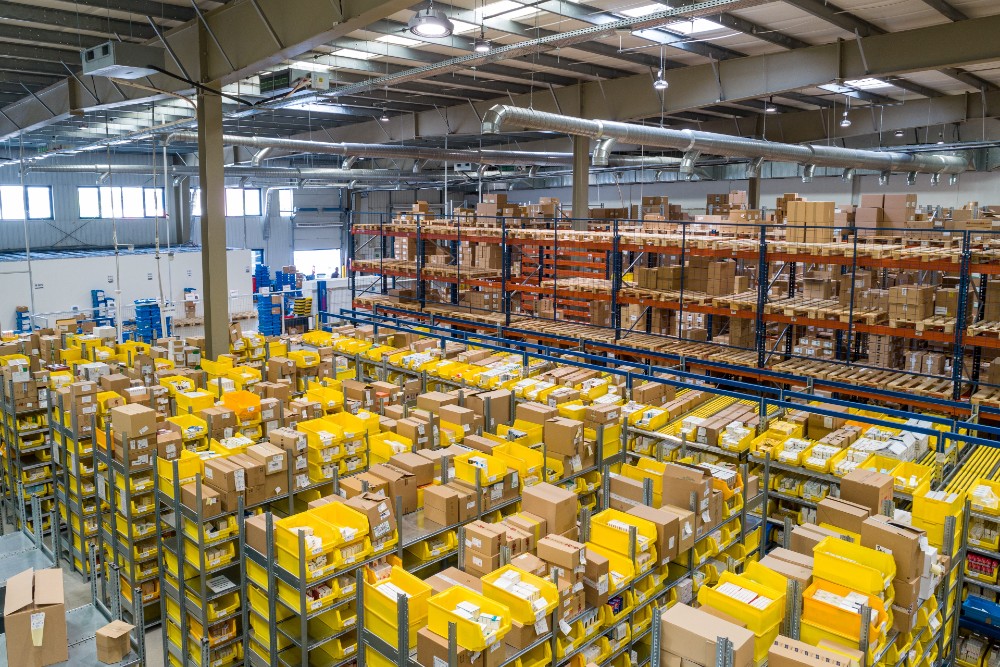Fires in warehouses are more common than most realise. Fires often result in large losses, both in terms of damage of constants, damage of structures and significant business interruption.
The current trend is for larger and more expansive warehouse buildings tobe built, following the continued growth of commerce and retail. Narrow gaps and the cost-effective use of space has resulted in a higher risk of fire, and as a result, larger and more dangerous fires. The potential for rapid fire spread in these types of buildings is easy to see – leading to the more difficulty for firefighters to combat the fire and an increased risk to life.
Warehouse fire safety has major implications on both life and insurance. Proper risk management is essential and preventative measures need to be taken.
What are the most common causes of fire?
There are a variety of ways a fire could be instigated in a warehouse. Being aware of these causes is the first step toward prevention.
Arson attacks – by an individual internally or external, a member of staff or a third party offender.
Electrical faults – such as lighting, equipment or fuses
Charging of forklift trucks – improper use if rife and very dangerous
Flames, heat and sparks – Operatives and Contractors should be very careful and follow safety procedures when wielding naked flames
Heat-sealing equipment – often overlooked, shrink wrapping equipment is easily hot enough to start a fire
Mechanical failure – machines need to be regularly supervised and assessed for faults when due
Heaters – unsuitable heating equipment such as portable heaters should either be banned or included in risk assessments and insurance policies
What risk control measures need to be in place in a warehouse?
There are a variety of risks that burgeon warehouse members and operators. Ranging from effective security to proper procedures, risk control measures are necessary to prevent fires and monitor situations.
One of the most effective forms of preventing the instigation of a fire is to improve security. Protecting against intruders who have the intention of doing your business harm will reduce the likelihood damages occurring. Security measures should marry the risks they are designed to counter.
Fences on your premise boundaries are important. Gates need to remain locked, or secured at the correct times. Palisade fencing is strong, durable and effective beyond 2.4 meters. Entrances should be manned by a dedicated security guard and ideally remotely monitored. Surveillance around and within the perimeter is permitted and recordings of public roads can be kept for upto 30 days. CCTV systems need to conform to BS8418 and be approved by UKAS inspectorate.
Physical security should as locks and window shutters are commonplace. Antiram bollards are becoming more popular and will benefit preventative measures of theft and targeted attacks. Intruder alarms dates all the way back to the 1700s and are an effective, expected form of security. They need to be properly installed and set up by a certified electrician in accordance with PD6662. All electrical security measures must be correctly designed, installed and maintained with inspection and testing at periodic intervals in accordance with BS7671:2018 “Requirements for Electrical Installations” undertaken by a qualified electrical contractor.
What are the warehouse procedures that help prevent fires?
We believe following regular procedures and outlining an effective risk management strategy is the best way to reduce the likelihood of a fire in your warehouse. Here are a list of procedures we’ve researched which you could check are in place at your place of business.
- Keep goods a minimum of 50cm clear of lights.
- Luminaires and open lighting should not be positioned directly above stock.
- Heating equipment should be 1 metre clear of storage and have guarding.
- Storage arrangements should provide adequate means of escape, very important in the case of a fire.
- Hazardous materials such as flammable liquids, oxidising agents and aerosol products should be separated. They also need to be labeled according to the Dangerous Substances and Explosive Atmospheres Regulations, and specifically included within your risk assessment.
- Bins, skips and waste needs to be over 5 meters away from the property. We have seen claims disputed for this very reason, as bin fires are one of the most often seen dangers to premises concerning fire. (The policy terms often reads – “Where unavoidable such storage should be as far as practically possible from the building or other property with a minimum distance of 5 metres expected.”)
- Waste materials should be removed from the building at the end of working day. Because of how flammable waste can be, and the dangers of open flame in a warehouse, waste burning is to be prohibited.
- Smoking must be prohibited throughout the premises in accordance with smoke free legislation. External smoking enclosure or areas are commonplace at workplaces and warehouses – for further guidance read, HSE documentation
- Fuel and gas cylinders stored for handling machinery fuel should be kept secure, well ventilated and away from sunlight.
- Close of house procedures should include checks of all areas of the warehouse and any removal of any waste materials.
- Implement a Hot Work Permit system to help reduce the amount of hot work present in your warehouse.
- The use of shrink wrapping equipment and shrink wrapping guns deserve proper training. They need to remain well-maintained and suitable fire extinguishers need to be kept nearby.
For effective fire management advice, contact your broker
The tips we’ve provided allow warehouse manager and operators review their procedures and ensure they have all the effective risk control measures in place. For further advice and information, contact your broker.
As a Romero client policyholder, you will receive up to date advice and reap the benefits of an independent broker.
How We Work
Romero Insurance Brokers are a chartered, independent insurance broker.
We offer innovative solutions to protect, support and reassure you. Bringing certainty in an uncertain world, we’re dedicated to giving you all the cover you need, and none you don’t.




